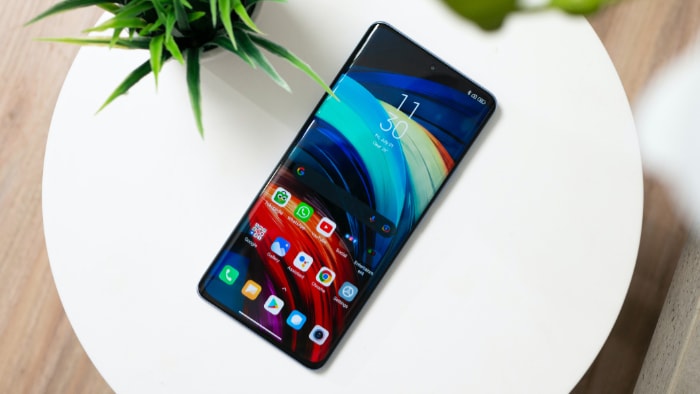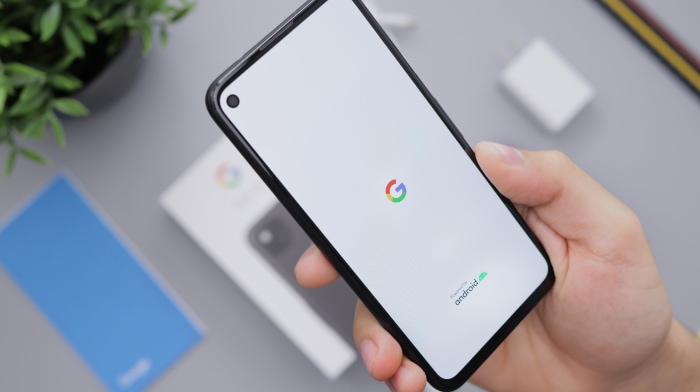Why People Hate Android: Debunking Myths

Across various tech communities, forums, and casual conversations, one topic seems to perpetually ignite passionate debate: the contest between Android and iOS. Each side has its ardent supporters who strongly argue for their preferred platform’s superiority.
Interestingly, despite the widespread use and immense flexibility offered by Android, a certain segment of users harbors a distinct dislike for this platform.
Understanding Android and its Market Position
Android is a remarkable chapter in the chronicles of technology. Originally conceived by Android Inc., and later acquired by Google in 2005, it was developed with the vision of an open and customizable mobile operating system.
Released to the world in 2008, Android has since undergone numerous evolutionary iterations, each bringing a host of new features, improved performance, and enhanced user experiences.
Android’s Current Market Share and User Base
Navigating through the landscape of mobile operating systems in the second quarter of 2023, Android stands firm as the global leader, boasting a market share of a robust 70.8 percent. This staggering figure accentuates Android’s extensive reach and substantial influence.
Major Android Phone Manufacturers and Their Products
Android’s success isn’t just a testament to its merits as an operating system, but also to the variety of manufacturers that produce Android-powered devices. Samsung, Huawei, Xiaomi, OPPO, and Vivo are just a few of the heavyweights in the industry, each with a unique lineup of products.
Samsung’s Galaxy series, for instance, is highly praised for its advanced features and sleek design, while Xiaomi’s Redmi series offers strong performance at an affordable price point. This diverse product landscape, all under the umbrella of Android, caters to an array of consumer preferences and budget ranges.
From its humble beginnings to its current status as a market leader, Android’s journey has been marked by continuous growth and innovation. Despite its success, however, the platform faces a unique paradox—while loved by many, it’s equally disliked by a significant number of users.
Diving into the Reasons for the Dislike
With a clear understanding of Android’s market position, we can now delve into the heart of our topic—the reasons for the dislike towards Android.
User Interface and Experience
One of the frequent criticisms leveled against Android is its perceived complexity compared to iOS. Some users find Android’s interface less intuitive, citing a steeper learning curve, especially for those transitioning from iOS or for older adults who are less tech-savvy.
Inconsistencies in Design Across Different Android Brands
Android’s open nature allows device manufacturers to customize the operating system, leading to a variety of user interfaces. However, this can result in inconsistency in design and user experience across different brands.
Critics argue this lack of uniformity can be confusing for users switching between Android devices from different manufacturers.
Frequency of Changes and Updates, Leading to Potential Confusion
While regular updates bring new features and improvements, they can also alter the user interface and experience. Some users find frequent changes confusing or frustrating, especially when they have to relearn how to perform tasks they were comfortable with on previous versions of the operating system.
Perception of Quality
The perception of quality is a significant factor influencing users’ views towards Android. iOS devices, manufactured solely by Apple, maintain a consistent level of quality control and premium materials.
Android, on the other hand, is used by a range of manufacturers and found in both high-end and low-end devices. This broad spectrum often leads to a perception that Android devices, in general, are of lower quality.
Discussion About Android Fragmentation Issue
Android fragmentation refers to the problem where many devices are running different versions of the OS, which can lead to inconsistent performance and compatibility issues. This is a consequence of Android’s wide range of manufacturers and devices, and it’s a common complaint from developers and users alike.
The Impact of Cheaper, Lower Quality Android Devices on Brand Perception
While Android’s affordability and accessibility are strengths, the presence of cheaper, lower quality Android devices on the market can negatively impact overall brand perception. The issues that plague these low-cost devices often get extrapolated to the entire Android ecosystem.
Security Concerns
Security is a critical concern for many users, and Android is often perceived as less secure than iOS. The openness of the Android platform and its vast, diverse user base makes it a more common target for malware and cyberattacks.
The Role of Open-Source Nature of Android in Security Perception
Android’s open-source nature is a double-edged sword. While it allows for customization and versatility, it also potentially opens up more avenues for security vulnerabilities compared to the closed, controlled environment of iOS.
Customer Support and After-sales Service
Customer service and after-sales support are areas where Android manufacturers, due to their decentralization, often struggle to match Apple. With Apple, users have a single point of contact for issues, which is not always the case with Android manufacturers.
Comparison of Android’s Decentralized Approach vs Apple’s Centralized Support System
Apple’s centralized support system, which includes Apple Stores’ Genius Bar and a unified warranty system, provides a generally seamless experience for customers. On the other hand, support for Android devices varies by manufacturer and location, which can lead to inconsistent experiences.
Brand Loyalty and Perception
Brand loyalty plays a significant role in shaping consumer preferences and perceptions. Loyal Apple users, for instance, might be more likely to view Android negatively, simply out of allegiance to iOS.
The Perception of Apple as a Luxury Brand and its Impact on Android
Apple has positioned itself as a luxury brand, and this image influences how people perceive Android. Despite the high-end Android devices available, some users still see Android as a lesser alternative due to Apple’s effective branding strategy.
Misconceptions about Android

Apart from the legitimate criticisms, there are also a number of misconceptions about Android that contribute to the dislike.
Dispelling Myths about Android’s Complexity
One common misconception is that Android is complex and difficult to navigate. While it’s true that Android offers extensive customizability options that may seem overwhelming to some, it’s equally possible to use an Android device with its default settings.
Most Android devices are user-friendly right out of the box, offering an intuitive and straightforward experience.
Addressing the Misconception of Android as an Inferior Platform
The perception that Android is an inferior platform compared to iOS is another widely-held misconception. Android, like iOS, is a sophisticated, advanced operating system.
High-end Android devices, such as the Samsung Galaxy S series or Google’s Pixel phones, match or even surpass the iPhone in terms of performance, features, and build quality. The diversity within the Android ecosystem shouldn’t be seen as a drawback, but rather a strength, as it offers choices for all budget ranges.
Correcting Misunderstandings about Android’s Security
Many people believe that Android is less secure due to its open-source nature. However, it’s crucial to understand that open-source does not inherently mean insecure.
Android has robust security measures in place, and Google continuously works on updates and patches to address any potential vulnerabilities. It’s true that Android’s openness makes it a more frequent target for malware, but with good practices like only downloading apps from trusted sources and keeping the device updated, users can maintain a high level of security.
Emphasizing the Value and Potential of Android’s Diversity and Customizability
A common narrative is that Android’s diversity and customizability create inconsistency and confusion. However, it’s essential to view these aspects from a different perspective.
The diversity in Android allows it to cater to a wider variety of user preferences, and the customizability enables users to create a personalized user experience that truly suits their needs and preferences.
How Android is Improving and Addressing These Concerns
Criticism, while sometimes tough to handle, can be a valuable tool for improvement. Recognizing this, Android has taken significant strides in addressing the concerns and enhancing the user experience.
Recent Updates and Improvements in Android UI/UX
Google has been continually working on making Android’s User Interface (UI) and User Experience (UX) more intuitive and user-friendly. The newer versions of Android have seen significant enhancements in design consistency, simplicity, and intuitiveness.
With each update, Google is bringing in changes that improve usability and make the system easier to navigate, even for new users.
Initiatives to Enhance Security in Android
Security has always been a primary focus for Android. Google has implemented several robust security measures, such as Play Protect, which scans apps for harmful behavior, and the monthly security updates that are issued to protect Android users from potential threats.
Google is also encouraging manufacturers to provide regular security updates to keep devices protected.
Efforts by Manufacturers to Improve After-sales Support
Recognizing the importance of strong after-sales support, many Android manufacturers are taking steps to improve their customer service. Samsung, for example, has been expanding its customer service network, while other manufacturers like OnePlus are offering extended warranties and better customer service infrastructure.
The Rise of Premium Android Devices and their Impact on Brand Perception
In response to the perception of Android as a lower-quality alternative to iOS, several Android manufacturers have released premium, high-end devices that compete directly with iPhones in terms of build quality, features, and user experience.
Devices like the Samsung Galaxy S series, Google Pixel, and Huawei P series are changing the perception of Android as a platform for budget devices, showing that Android can deliver a top-tier, luxury smartphone experience.
Conclusion
The debate between Android and iOS is not a simple matter of superiority, but rather a reflection of personal preference, familiarity, and perception. While Android may face criticisms and is sometimes subject to negative stereotypes, it is critical to understand that many of these criticisms are based on misconceptions or personal preference, rather than objective shortcomings.
Android’s strengths lie in its adaptability, customizability, and wide-reaching accessibility. It caters to a diverse user base with varying needs and budget ranges.
While it might be perceived as less intuitive or uniform than iOS, these aspects contribute to its rich diversity and offer a breadth of user experience that is unmatched.
In terms of quality and security, Android has demonstrated consistent growth and improvement. High-end Android devices can compete with the best from Apple, and with a focus on improving security measures, Android is more secure than ever.
Customer service experiences can vary across Android’s diverse ecosystem, but manufacturers are increasingly recognizing the importance of this aspect and taking steps to improve.
Ultimately, the key is to appreciate Android for what it is—an open, customizable, and innovative platform that strives to cater to a wide array of users worldwide. By exploring and addressing the criticisms and misconceptions, users and prospective users can have a clearer, unbiased view of what Android offers.
It’s a constant journey of evolution, and Android is showing no signs of slowing down in its mission to enhance the smartphone experience for its users.


